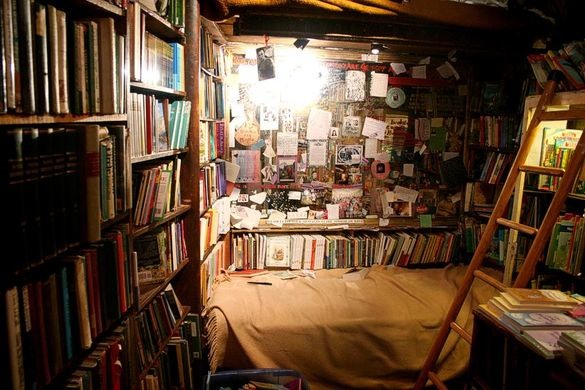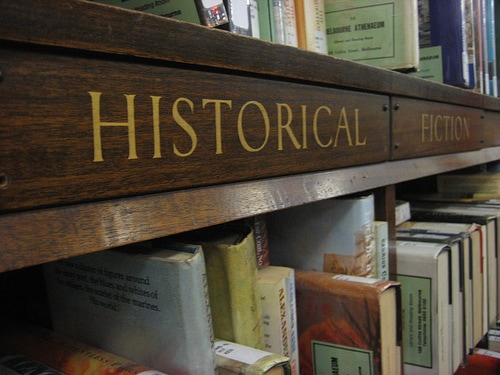 I’ll be honest and say that I’m supposed to be writing. Touching up the ending of a novel and setting the blocks for its sequels, in fact. But we’re having a plot disagreement at present, so I chose to devote my evening to a blog post instead. I’m returning to editing tomorrow; I always end up going back. Books are like children in some ways, and so, creating them should be handled responsibly, and with the knowledge that you will be tending to its needs at all odd hours for quite a few more years. My last four years have been solely dedicated to the same two or three books, chipping away at drafts and tightening details with each new pass. “Why push through for that long?”, you might ask. Knowing when to complete a draft is tricky, after all. Some projects aren’t worth the effort. I’ve even often wondered if my persistence borders on wasteful and tactless. There will be some stories that haunt you though, no matter what you’re writing. They tug at your hair and disturb you in the night. Ideas that crop up as scribbles on napkins, in the margins of homework. Those books? They are the ones that need telling. But some stories haven’t been so fortunate. There are few truths in the lives of authors, other than death, taxes, lost data, and lots of abandoned writing. Every career is littered with unfinished ideas and unrealized plots. I spent much of my teen years composing stories via a notebook or my school laptop, all abandoned as I hopped from one story to the next. In fact, my current troublesome draft is the culmination of a few unfinished story ideas that I realized, quite amazingly, finished each other. The story I kept trying to tell was easier after I aged a few years. Even if it wasn’t the same general thing, it was still full of the same tropes, archetypes, and themes. I stopped throwing things away after I noticed. Finishing a book came in waves; completing the first draft is huge, but completing the first revision is bigger. And just like writing styles, revision styles are wholly unique to the author. I know writers who work through second and third drafts with the complete guidance of beta readers. I know writers who guard their works jealously until they feel it worthy of sharing (whatever draft that might be). I suspect, from my own experience, that revision style is harder to pin down than anything else. Writing is such a natural creative expression, whereas revision means taking that methodical knife to your expression and knowing where to cut. Being a good editor and a good author aren’t always synonymous skills, and neither are easy-going. So, can you lose a draft in these waves of completion? Absolutely. People have edited books to death, or lost the voice of a story in the noise of too many early readers. Or, honestly- in the disparagement of the author. Editing is harsh, messy, and full of obstacles; writing would be easier if plotlines just worked themselves out. Why write at all? This all sounds very dreary, doesn’t it? I was originally heartbroken at the idea that a story could go sour, even after so much work and time. “Then,” I thought, “what’s the point of finishing at all? Why am I even doing this?” Because of those stories that haunt you. Effort has merit, and so does knowing when to release a story- whether that means focusing our efforts on the projects that matter or finally ending our persistent edits. We all reach a day when our book baby is all grown up and we can no longer predict what it will say to others, or where it will go, and who might read it. That’s okay. This still makes most authors very anxious, and that’s okay too. You will have other stories to create, visit, and shape, and yes, more edits to weep over. I’m still supposed to be writing, and have made a sport of actively avoiding it at this point. But I do always manage go back and finish something, which counts in my book. There are scores of abandoned things that I leave in my creative wake, but I am happier knowing we never fully abandon our stories; we just recreate and revisit when the time is right.
1 Comment
I was about 14 when I realized I enjoyed writing historical fiction. Then gawky, modestly full of angst, and just getting my sea legs with writing, I was fangirl of three things: comics, Fall Out Boy, and Pirates of The Caribbean. The last one was where I first found my voice in fanfic writing, curious to explore other characters and alternate universes after watching the movies and reading the spin-off novels so many times. The PoTC craze was bigger then, since the original trilogy had just finished, so pirate books were everywhere. Busy writing, I opted to snap up whatever I could to read more about the Golden Age of Piracy, and discovered how much more I liked that instead. Clumsily, I started stitching up my Pirates stories with more historical accuracy and peppering them with historical figures like Blackbeard and Calico Jack. I dragged my family all the way to Galveston to visit the Elissa, one of the few functioning tall ships in the United States. I went find Jean Lafitte’s house by the harbor, then took all the details back to my writing. It actually paid off; I won my first writing award for the fanfic I composed with that research. I really haven’t changed much as an adult, though my stories got more original and my adventures got bigger. Most importantly though, I’ve become a much better researcher. When I first started writing my current series around late 2012, I vanished back down the research rabbit hole, into the world of Gothic fiction, Victorian history, zombies, and Irish mythology. It was kind of a handful, but I was eager about that. I wrote a few very top-heavy rough drafts and spilled all my information into this book, the author equivalent of taking several buckets of paint and dumping their contents straight to the canvas. The result was potentially pretty, but needed… organizing, lest it turn into a mushy shade of gray. This is a big sin in historical fantasy, where the author has so much to share with the audience that the story can get lost in the details, and Dickens call-backs, and angles of possible historical accuracy (I’m looking at you, Cassandra Clare). The good thing about being a writer is my paint isn’t permanent, so I can separate and remove colors as I need. This also meant narrowing down what kind of research I needed for the story in the first place. So, I spent a few more years on the book, removing layers and adding small flourishes of detail. Travelling to locations and buying new books whenever I could. I reminded myself that there were always new books to write, so- yes, even though it’s super interesting that they were still opening up the Jack the Ripper case in 1901, maybe I don’t need that detail so much right now. Characters were cut and plotlines were tightened. I mourned over my darlings, but also celebrated that I made the book better. With the novel in its final stages and its novella out to the public, I am happier that I took the time to make sense of my strange Gothic, Irish zombie book and find what mattered in its history. One thing about becoming a better researcher that I enjoy is how human it makes the past feel. Writers sometimes get so wound around their research, we lose sight of pirates or Victorians in a morass of quirky facts, morals, and behavioral guides. We forget that they were still people, and people don’t really change throughout history; we simply find new ways to do old things. Keeping this in mind grounds the characters in their present day, which they don’t view under a glass of important authors, historical figures, and tourist-style visits to certain locations. It’s as alive to them as this day is for me, and even a modicum of this really saves the story from becoming an antiqued tribute to some forgotten era. I so think that should be the final goal of historical fiction, whether fantasy or more realistic. Researching means you get the blow the dust off of history; writing it requires you bring it to life for someone else. There is skill in becoming well-read historically, but there is magic in making that history real for the reader. [trigger warning: CSA and PTSD] "Out it comes, The beast. Hands shake, pulses race Dread takes its course, wringing over and over. There is no water, And on we wring. Within, It rots. It stews, Becomes and fades, The ever-present pit, the ever-present wreck." The above section is from a poem I penned in 2014, according to my computer. It was three in the morning, in the middle of summer, and I was having a panic attack. No particular reason, if I remember right. Sometimes they don’t have good reasons, which is probably why I started writing about panic attacks. Writing it out makes far more sense than the strange wash of emotion that overwhelms your head when you deal with anxiety. I've chipped away at this piece for awhile, waiting for the right time to share. And this is one of those times where most writers can relate to having a bit more anxiety, I think. I also wanted to open up this post with some honesty, because anxiety, creativity, and I have a funny relationship. I'm not alone there, as most artists, writers, and creative types report dealing with anxiety disorders and/or depression in some form. The world is messy, dark thing lately, and can be hard on those of us that feel 'too deeply'. The empathetic, gentle, and first to notice every detail in our world. It can be distracting, de-motivating, and tremendously difficult to overcome. Creating anything might be the last thing on your mind right now, but there is merit to giving the stress and inner darkness a little more voice. I speak from personal experience. The first attacks started cropping up after I turned 18, but that anxiousness took different, intrusive forms over the years. My childhood was dotted with dark spaces; I grew up poor, and am a sexual assault survivor. My attacker never saw justice, or the therapist he was assigned, so I had to dodge him for years afterward. Bullying followed when I turned reclusive, and silence reigned as my experience turned to fear when I started dating. You never really outrun trauma, so I learned; you can only put more space between you and the harm it's done. There are bruises in my bones, but they fade with every year. I hated talking about all of it- I hate talking about it to this day, but my fight had to go somewhere. My wars turned into something more creative and internal, if only to address the sheer, raw ball of anguish that often settled in the pit of my stomach. Everyone has a story about why they started writing, or their default answer becomes “I was born to write.” I often discount the idea of being born to do something, but my connection with writing has always been my strongest response, after the therapists had gone and the noise remained too much. The place where my emotions made the most sense. I wrote as a direct response to hardship, and turned to the aforementioned poetry to vent. Sometimes I just open a Word document and spill out over the paper in honesty- I always ended up deleting those. I have used words, writing and reading alike, as a reflection for most of my life. A mirror from which I can better understand myself. “Creative people don’t come from happiness,” a fellow writer once told me, in response to a conversation about rough childhoods. I think that is very true, in a certain light. Writers can be happy people by nature (like myself), but we have our axes to grind- some more than others. Some more than me. Everything I create feels like a step; I am lighter when I finish something, like I’ve untangled my insides a little. Heaven knows they won’t untangle themselves. When I started writing seriously in college, it was a response to reoccurring ideas: the moment where I said, "I'm gonna start doing this for real and write a novel!". But it also became a vehicle for energy and stress. Rather than struggling to balance writing and college, I have thrived in both. I made peace with myself and with my world, just a little. The beautiful part about writing fiction is it eventually becomes your mirror anyway, showcasing honest sides of the author in a character trait, a sentence, and description just human enough that it couldn't be faked. Translating yourself under the guise of another world is any artist's ultimate goal; we love fanart, and fans, and entertaining the idea of fame on occasion, but truthfully, I think we all just desire to voice something in these struggles of silence. When your head fills with too much noise, clutter, and inky blackness, there is life behind the page. There is freedom in knowing that you can relinquish it back into the world. There is bravery in shedding light on the underbelly of a troubled world. There is healing in the quiet spaces between you and your words.  “I think I hated my novel a little,” I said this week. I used “hate” in past tense since I have recently picked back up on the same batch of editing I dropped around this time last year. I gave a parting bow to my former host, Inkitt.com, and started writing the way I loved again. I was brought back from the dead, at last! But I really hated writing for awhile. Last year, I got stuck exactly five chapters before my ending. The reasons started stacking onto each other: my grandfather had just passed away, my class life was plagued by an unstable professor who didn’t like me much, and generally (truthfully) discouragement had taken over. I had climbed very high in a few contests, only to lose a shot at a publishing deal twice over. My WIP novel, Chimehour, had done very well with early audiences and shown prowess. My odd little love letter to Irish folklore, history, and all the beautiful Victorian poetry I had grown up with. The one I had written with the intention of shoving it into a drawer. I couldn’t shake the feeling I needed to share it though; I could never get away from the idea that the book needed more eyes. So, one reader turned into twenty: one marketing idea turned into a thousand. The ball started rolling and I was gaining a small following before I really knew what to do. Now, if I could just finish that book. As 2016 rolled in, two things happened: first, I lost my last big contest and decided to fully remove Chimehour from the website. Second: I was approached by the site’s CEO to take on the role as Authors Community Manager, and I stopped removing Chimehour altogether. A long year has unraveled after that, which you can find in my previous blogs- here, here, and here. It was and remains one of the most unusual, crazy, and unique jobs I’ve ever had. I also didn’t write a whole lot while I worked for the Berlin-based company, but I learned some things about myself as a writer in its stead: I crept out of my bookish cave and saw the world with a little more clearly. Inkitt, I suspect, is the best thing that happened to me as a novice, and subsequently, leaving the company was also the best thing I’ve ever done as a novice. It all let me love my novel again, and there are a few reasons. Letting in The Right Voices: There’s a famous quote from Stephen King that I’ve always liked: “Write with the door closed, rewrite with the door open.” Everyone has an opinion when they read your work, and chances are, if you are writing, you book will end up being read. Some voices will not be the most positive. In Jeff VanderMeer’s Wonderbook, there is a section in which he discusses the wrong kind of early readers. The over-editors, nitpickers, and analyzers that wish more of their voice in a story than yours. When dealing with beta readers and early supporters, it’s important to surround yourself with the right voices. People who can support and critique equally without making you lose the heart of your story. People who you can message at 2am when scenes aren’t working, just to distract yourself. People who you can message at 2am who will promptly spam you with Shia Labeouf memes to get you started again. Other authors in particular are good for this, but I have my share of friends who just act as supportive ears. Honesty, compassion, and awareness of your usual authorly slacking can go a long way. Accepting Endings Is Hard: Endings are actually, in my personal opinion, the hardest part of any project. I am one to rush through them in every single first draft, and every time, I regret it because I end up rewriting 80%-90% of said ending by the third draft. Wrapping up a story of any kind is tricky, since you have to draw every curtain to a close and wrapping up every loose plot thread. It has taken upwards of eight drafts to accept that my ending just takes time to get right, and that is okay. This also means accepting the ending in the most literal sense: ending the story and moving on to something else. This part tends to give me trouble- I get attached to my projects easily and turn into one neurotic editor if I’m not careful. Both can become their own vice where you never finish anything. There is a sense of sadness that comes with closing a project out and letting go, but it’s important to know there will always be new novels, bigger dreams, and great stories to pursue. Don’t Lose Heart, Just Make Space: The most important lesson I gathered from this year about writing was about keeping heart and staying focused. The toughest part of long-term projects is the relationship you garner with them, and the ups and downs that come with such things. For writers, those downs can sometimes outweigh the ups, and slow spots in your work can feel like mountains of discouragement, too impossible to climb. Your work can suddenly feel like an enemy, rather than a close companion. This is often why I consider the year and a half I’ve taken away from editing/writing the healthiest thing I accidentally did for my novel. It gave me time away from the project, to think, feel, refuel, and recharge. It also gave the novel time away from me, where my words could settle without my tinkering and constant judgment. When we reunited, it was a much, much happier time, as the space I had created had re-allowed me to fall in love with my novel. Chimehour currently stands with four chapters to re-edit, and a check from some very eager beta readers! I hope to have the novel out in the next year (for real), and hope to share the other books in the series soon after. It’s been a great, wild journey reconnecting with my work, and my only hope now is to share it back to the world in the way it deserves. |
About MeCaitlin Jones is an author, film editor, and lover of all things Victorian and fantastic. Please check in for information on her upcoming series. Archives
August 2020
|


 RSS Feed
RSS Feed
